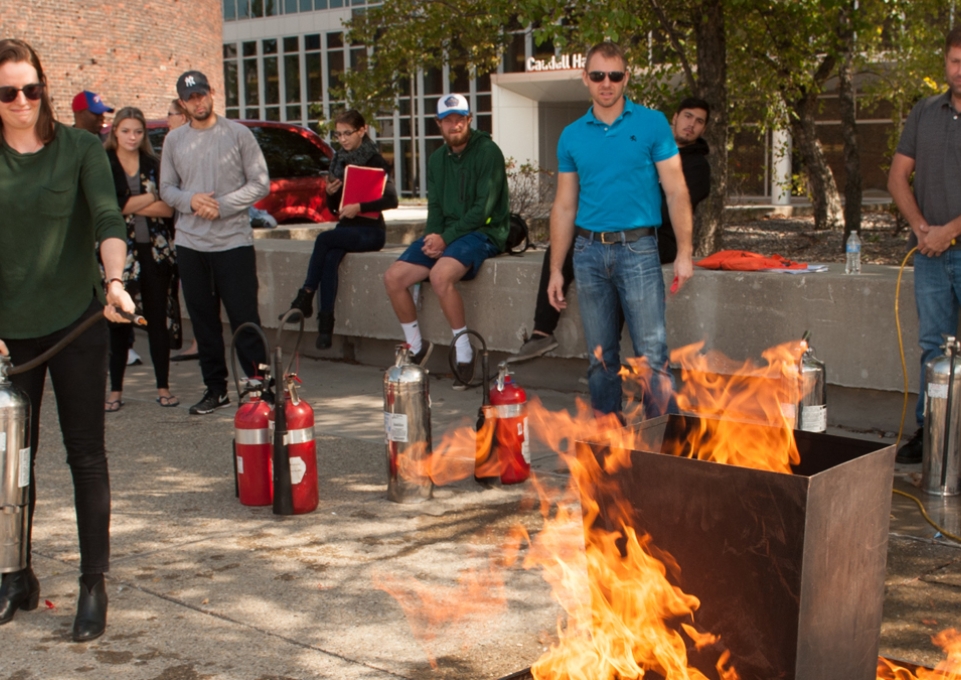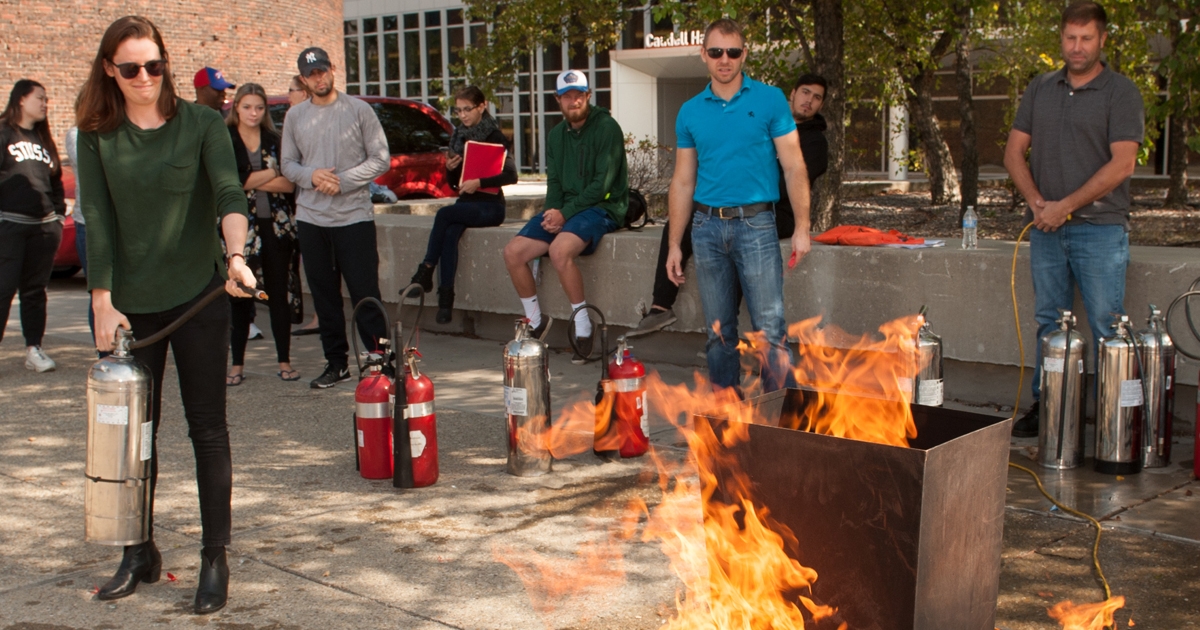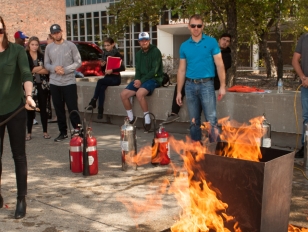
At Buffalo State College, all incoming students are held to a set of principles called the Compact for a Civil and Caring Academic Community. Students who live, study, and work together as members of the campus community pledge to “treat each other with civility and respect, with care and concern, and with a commitment to the academic purpose for which Buffalo State exists.”
In many ways, the compact lays the foundation upon which the safe and caring learning environment that defines Buffalo State is built.
“Our compact is not a fixed policy, a rule, or a regulation,” said Sarah Young, dean of students. “It’s an understanding about what we all agree is right for our community.”
Buffalo State has countless procedures and programs in place to maximize campus and student safety. From the training of residence hall staff members, to education and awareness programs for students, to the relationships University Police Department officers build with the campus community, safety is paramount.
Well before they begin classes, incoming students attend a rigorous, mandatory orientation program aimed at familiarizing them with campus resources, such as programs the Career Development Center has to offer, the ins and outs of financial aid, and a primer on “Life at Buff State” from the Student Leadership and Engagement Office.
These resources also focus heavily on safety, like the 44 blue-light phones that provide an immediate, direct, traceable line to University Police from most areas of campus. Orientation teaches students to be proactive in both their physical and online environments, to stay informed through Buff State Alert, to recognize the dangers of drug and alcohol abuse, and to avail themselves of safe transportation options like the college’s escort programs and shuttle services.
The college mandates online trainings in alcohol and drug abuse, as well as sexual assault prevention, including affirmative consent and bystander intervention. Incoming students also learn to recognize or prevent sexual harassment, sexual violence, dating violence, domestic violence, and stalking, and how to safely report these and other crimes.
“We’re always working to ensure that students have a safe environment that allows them to grow and succeed,” said Peter Carey, chief of the University Police Department.
Buffalo State’s University Police Department has been accredited by the New York State Division of Criminal Justice Services Accreditation Council since 2012, a distinction held by just 25 percent of all police departments in New York state. Individual officers have been recognized by the SUNY Police Chiefs Association for their outstanding courage, professionalism, and service.
Bicycle, foot, and vehicle patrols enable officers to monitor and maintain security on campus around the clock. UPD offers crime prevention and safety awareness education to students, faculty, and staff throughout the year. Officers work directly with the residence halls and get to know students there by visiting and conducting walk-throughs, and holding regular events like Coffee with a Cop to introduce themselves to the campus community.
In the residence halls, prevention and safety are always front and center, said Michael C. Cox, assistant director of residence life. Campus residence halls remain locked at all times, accessible only to students who live there, with cameras at entrance and exit points, sophisticated alarm systems, and resident assistants on every floor. A complex director or assistant complex director oversees every residence hall. In addition, University Police student assistants are located at the entryways of residence hall during busier times, to report any unusual activity to UPD.
Regular fire drills and inspections reinforce the dos and don’ts of safety and emergency procedures, as well as ensure the working order of all safety equipment. Resident assistants also receive fire prevention training, which includes learning how to evacuate a building and operate a fire extinguisher, and role-playing an actual fire. Representatives from the New York State Office of Fire Prevention and Control and members of the Buffalo Fire Department assist in this training, Cox said.
“We’ll have the RAs respond in a role-playing fashion,” he said. “It’s one of the most successful things we do to train them.”
Other programs on campus aimed at keeping students safe include the Campus Safety Forum, which reviews and suggests changes to current procedures, while the Care Team and the Community Emergency Response Team help members of the campus community know what to do if they have concerns and how to react during emergency situations. The college also offers CPR and AED training.
And because the Internet has vastly changed the way students communicate, plan, study, work, and even date, UPD works constantly to stay up to date on the latest apps and social media sites, according to Police Chief Carey.
“There are a lot of trainings for social media investigations,” he said.
At the end of the day, the job is about supporting students, in whatever they need to feel safe on campus, Cox said.
“We want to provide to students a support system that if you need something at any point, there's going to be someone that will help you out,” he said.
Photo by Bruce Fox, campus photographer.



